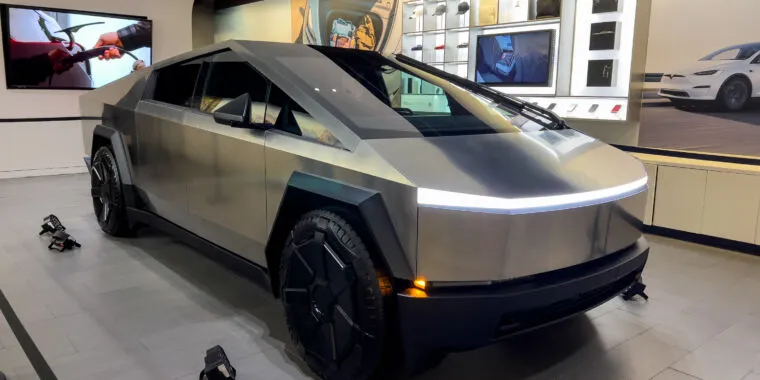Tesla stops cybertruck deliveries—accelerator pedal may be to blame
Tesla stops cybertruck deliveries—accelerator pedal may be to blame

arstechnica.com
Tesla stops cybertruck deliveries—accelerator pedal may be to blame

Owners will have to wait until April 20 for deliveries to resume.